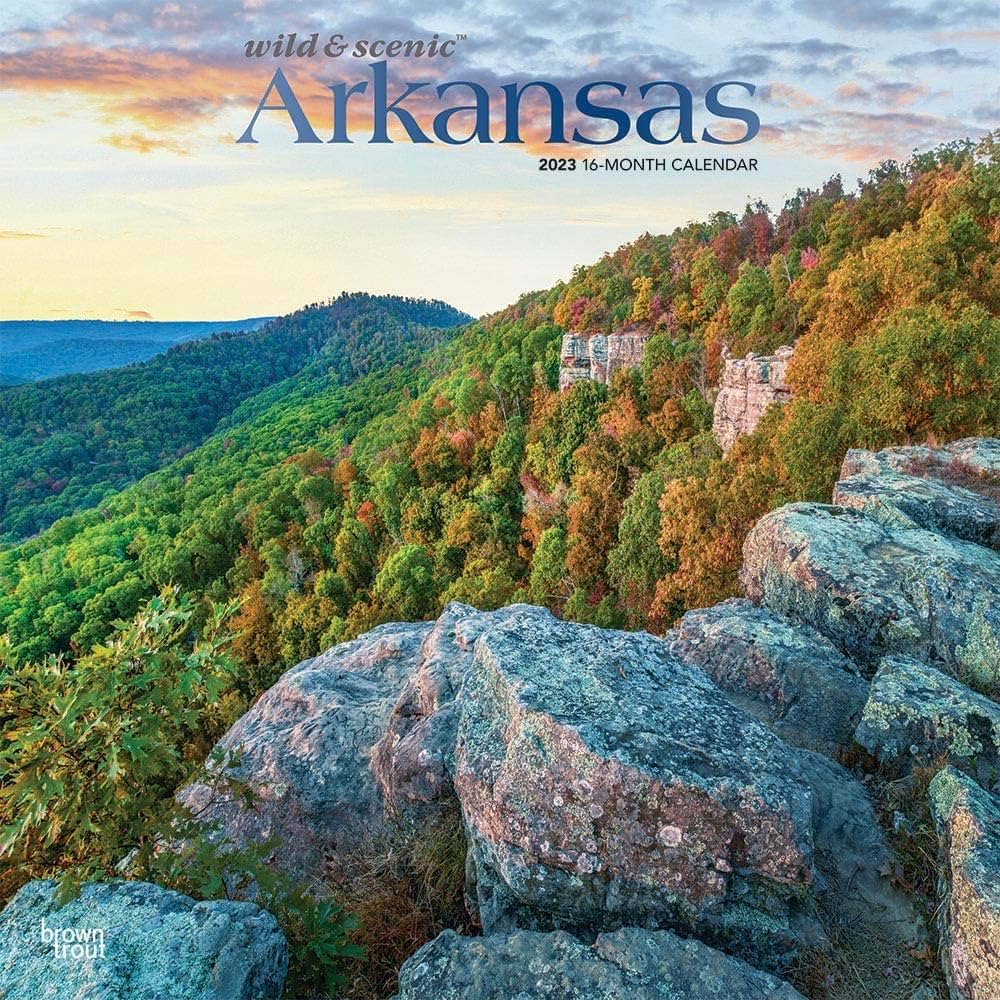Arkansas: The Natural State of the United States
Arkansas, nestled in the heart of the United States, is renowned for its picturesque landscapes and natural beauty. Affectionately known as “The Natural State,” Arkansas boasts a diverse array of natural wonders, captivating visitors and residents alike.
The state’s nickname originates from its rich biodiversity, stunning scenery, and abundance of outdoor recreational opportunities. From the rugged beauty of the Ozark Mountains to the serene tranquility of its lakes and rivers, Arkansas offers a wealth of natural attractions for adventurers and nature enthusiasts.
Breathtaking Scenery
Arkansas is home to breathtaking landscapes, including majestic mountains, lush forests, and cascading waterfalls. The state’s natural beauty provides a picturesque backdrop for outdoor activities such as hiking, camping, and wildlife observation.
Rich Biodiversity
Arkansas is teeming with a diverse range of flora and fauna, making it a haven for nature lovers and wildlife enthusiasts. Its extensive network of state parks and wildlife reserves offers ample opportunities to explore and appreciate the state’s ecological treasures.
Outdoor Recreation
The abundance of natural resources in Arkansas provides endless opportunities for outdoor recreation. Whether it’s fishing in pristine lakes, kayaking along scenic rivers, or exploring miles of hiking trails, outdoor enthusiasts will find no shortage of activities to enjoy in “The Natural State.”
Tourist Attractions
Arkansas is home to several iconic tourist attractions, including the world-famous Hot Springs National Park, where visitors can soak in natural thermal springs amid breathtaking scenery. Other notable attractions include the historic town of Eureka Springs, with its Victorian architecture and quirky charm, and the Buffalo National River, America’s first national river, renowned for its scenic beauty and recreational opportunities.
Cultural Heritage
In addition to its natural wonders, Arkansas also boasts a rich cultural heritage, shaped by its diverse history and vibrant communities. From Native American heritage sites to historic Civil War battlegrounds, the state offers a glimpse into its storied past.
In conclusion, Arkansas’s designation as “The Natural State” is a testament to its unparalleled natural beauty, rich biodiversity, and abundant recreational opportunities. Whether exploring its scenic landscapes or delving into its cultural heritage, visitors to Arkansas are sure to be captivated by all that this remarkable state has to offer.

Why this News is important
Preserving Natural Heritage: Understanding the significance of Arkansas as “The Natural State” highlights the importance of preserving and protecting its natural resources for future generations to enjoy.
Tourism and Economic Development: Arkansas’s natural attractions play a crucial role in driving tourism and economic development, supporting local businesses and communities.
Environmental Conservation: Recognizing Arkansas’s natural beauty underscores the importance of environmental conservation efforts to safeguard its ecosystems and biodiversity.
Recreational Opportunities: Knowledge of Arkansas’s outdoor recreational opportunities provides valuable information for individuals seeking leisure activities and adventure in the state.
Cultural Appreciation: Exploring Arkansas’s cultural heritage enhances appreciation for its diverse history and traditions, fostering a sense of pride and connection among residents and visitors alike.
Historical Context: Arkansas – The Natural State
Arkansas, located in the southern region of the United States, has long been celebrated for its stunning natural landscapes and diverse ecosystems. The nickname “The Natural State” was officially adopted in 1995, reflecting the state’s commitment to preserving its natural heritage and promoting eco-tourism.
The origins of Arkansas’s nickname can be traced back to the late 19th century when the state’s abundant natural resources, including fertile farmland, vast forests, and mineral springs, attracted settlers and entrepreneurs seeking new opportunities. As the state’s population grew and industrialization took hold, there was a growing recognition of the need to conserve and protect Arkansas’s natural environment.
Throughout the 20th century, efforts were made to establish state parks, wildlife refuges, and conservation areas to safeguard Arkansas’s natural treasures. Hot Springs National Park, established in 1832, was among the first federally protected areas in the United States, drawing visitors from far and wide to its healing thermal springs and scenic surroundings.
In recent decades, Arkansas has continued to prioritize conservation and sustainable development, recognizing the economic, ecological, and cultural value of its natural resources. The state’s extensive network of parks, forests, and wildlife management areas provides habitat for a diverse array of plant and animal species, while also offering recreational opportunities for residents and tourists alike.
Today, Arkansas remains committed to preserving its status as “The Natural State,” balancing the need for environmental protection with the demands of a growing population and economy. Through education, advocacy, and responsible stewardship, Arkansas strives to ensure that its natural beauty and resources will be enjoyed by generations to come.
Key Takeaways from “Arkansas: The Natural State”
| Serial Number | Key Takeaway |
|---|---|
| 1 | Arkansas is known as “The Natural State” due to its rich biodiversity and stunning natural landscapes. |
| 2 | The state offers a wide range of outdoor recreational opportunities, including hiking, fishing, and wildlife observation. |
| 3 | Tourist attractions in Arkansas include Hot Springs National Park, Eureka Springs, and the Buffalo National River. |
| 4 | Preserving Arkansas’s natural heritage is essential for promoting eco-tourism, supporting local economies, and conserving biodiversity. |
| 5 | Arkansas’s commitment to environmental conservation underscores the importance of responsible stewardship and sustainable development. |
Important FAQs for Students from this News
Q1. What is the significance of Arkansas being known as “The Natural State”?
A: Arkansas’s nickname highlights its abundant natural beauty and diverse ecosystems, attracting tourists and promoting environmental conservation efforts.
Q2. What are some popular tourist attractions in Arkansas mentioned in the article?
A: Hot Springs National Park, Eureka Springs, and the Buffalo National River are among the notable tourist destinations in Arkansas.
Q3. How does Arkansas prioritize environmental conservation?
A: Arkansas establishes state parks, wildlife refuges, and conservation areas, balancing economic development with environmental protection.
Q4. What recreational opportunities does Arkansas offer?
A: Arkansas provides various outdoor activities such as hiking, fishing, kayaking, and wildlife observation, thanks to its scenic landscapes and natural resources.
Q5. Why is it important to preserve Arkansas’s natural heritage?
A: Preserving Arkansas’s natural heritage supports eco-tourism, local economies, and biodiversity conservation, ensuring sustainable development for future generations.
Some Important Current Affairs Links

















